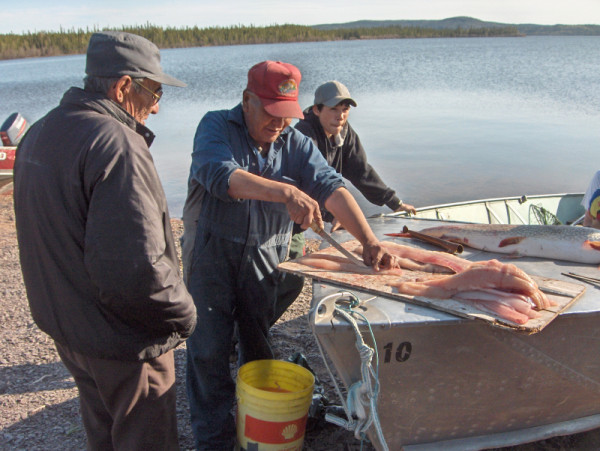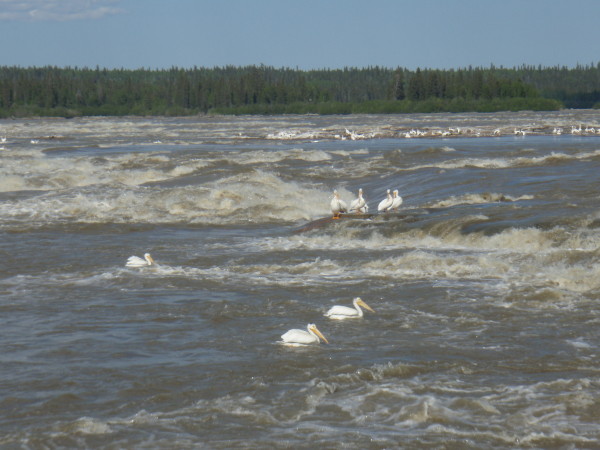Looking for answers in the Rivers of the Great Slave Basin
This month we’ve been telling you everything you wanted to know about water health! With WWF-Canada’s Freshwater Health Assessments, we’re in the process of measuring the health of all rivers in Canada and we’re one quarter of the way there!
That includes the rivers of the Great Slave Basin in the Northwest Territories and Alberta. This assessment covered not just one, but multiple rivers that all drain into Great Slave Lake – among them, the Hay River, Lockhart River, Slave River, Marian River.
Great Slave Lake is the fifth largest and deepest lake in North America. Unfortunately, as with several other rivers – such as the Liard, the LaHave and the Peel – there was not enough data available to evaluate the health of the Great Slave Basin.
The majority of the Great Slave Basin is located in southeastern Northwest Territories and northern Alberta, the remainder extending into British Columbia and Saskatchewan. The basin is home to 22 communities and 28-thousand people, all of whom rely on Great Slave Lake and the local rivers for subsistence fisheries.

The Slave River is the northernmost nesting place in North America for American white pelicans, one of the world’s largest birds, with wingspans measuring up to three metres. These majestic birds are currently listed as ‘Sensitive’ in the General Status of Alberta Wild Species report and can be negatively impacted by changing water levels that cause habitat loss.

Without adequate monitoring, it is difficult to tell if these waterways are healthy and to ensure that they will be healthy in the future. The good news is that there are some great watershed health initiatives in action in the Great Slave Basin.
For example, The Slave River and Delta Partnership and SWEEP – The Slave Watershed Environmental Effects Program are community-based monitoring programs grounded in both traditional knowledge and mainstream science along the Slave River and Delta. Our hope is that the data shortage found by WWF’s Freshwater Health Assessment will flag the need for a greater investment in monitoring throughout this amazing system.
WWF-Canada would like to thank The Walter and Duncan Gordon Foundation for their support of this important work.
